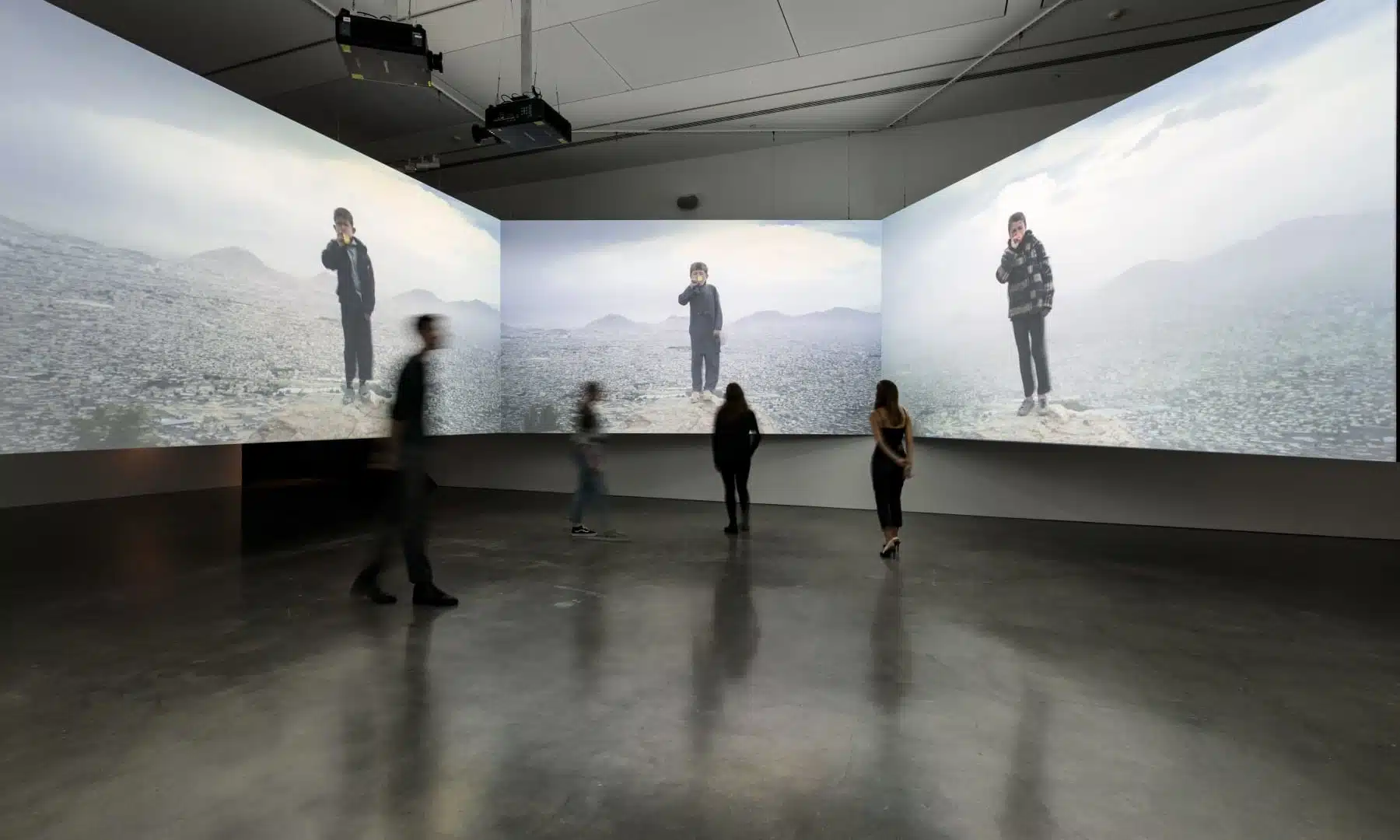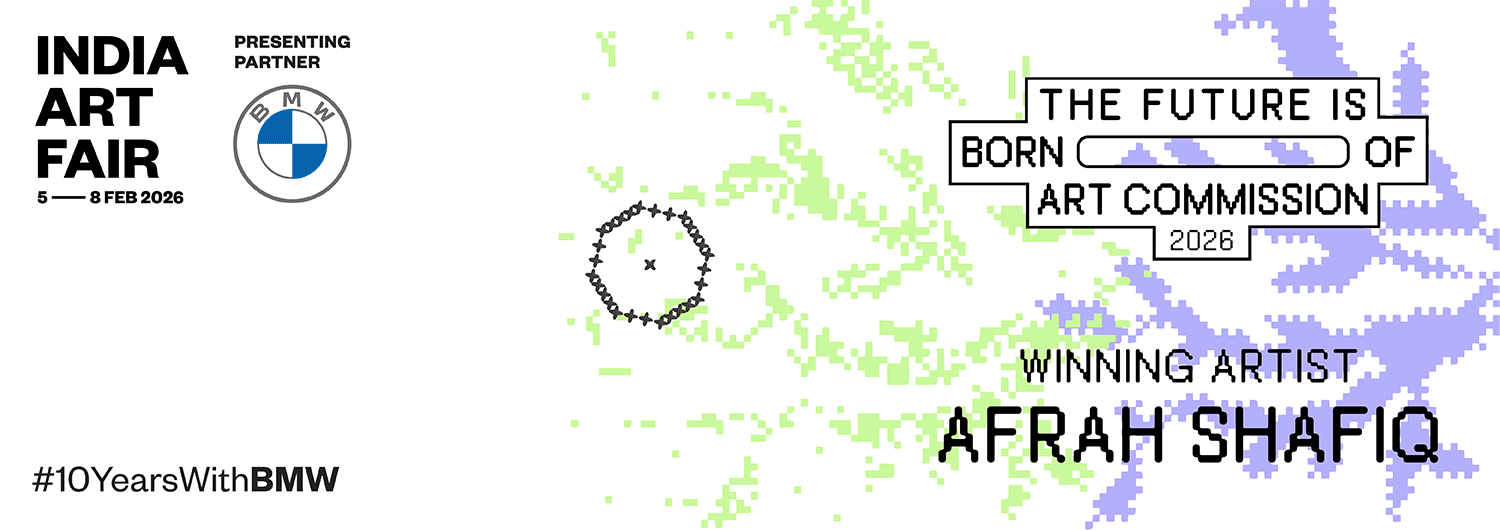How are artists responding to the rapidly changing technologies and media environments in the Global South? Reflecting on the critical challenges entailed when working with and through multiple interfaces, this panel looks at the changing attitude towards mediums, sites and practice in an increasingly hybrid world of the virtual and actual. Kaushal Sapre will moderate the panel with artists Moonis Ahmed, Aziz Hazara, Omer Wasim and Sultana Zana.
The session will take place from 6:25pm – 7:35pm (New Delhi/Colombo) | 6:40pm – 7:55pm (Kathmandu) | 5:55pm – 7:05pm (Islamabad) | 6:55pm – 8:05pm (Dhaka). To register and join, click here.
ABOUT THE SPEAKERS
Kaushal Sapre is an artist and researcher based in Delhi, India. He studied physics and engineering before completing his masters in visual art from Ambedkar University in 2017. Kaushal’s work addresses everyday experiences of living within contemporary technical systems, in an effort to think through conceptions of subjecthood, agency and community. His practice is articulated through traces of activity within precarious infrastructural arrangements. He is currently tumbling in the curatorial fray of ‘Powerlines Cicada Metal Drawl’, supported by Rockbund Art Museum, Shanghai; contributing to conversations around the social experience of telecommunication with ‘-out-of-line-‘; maintaining a web server infrastructure with thismightnotbe.online; and facilitating courses around digital media and technology at Ambedkar University Delhi.
Moonis Ahmad was born in Kashmir and is an artist whose practice transverses various media such as installation, sculpture, programming, sound and video. His work is at the intersection of art, philosophical speculation and historical enquiry, and seeks to contemplate the emergence of new worlds and heretical flights of time and objects to critically address the questions of territory, language, belonging, gatherings and borders. He has shown his work at various solo and group exhibitions nationally and internationally including at the Margaret Lawrence Gallery in Melbourne, Vadehra Art Gallery in New Delhi, Sattlekamer in Bern, Switzerland, Auckland Art Fair in New Zealand, Goa Centre of Arts, 1×1 Gallery in Dubai, among many others. He is a recipient of the Foundation of Indian Contemporary Art’s Emerging Artist Award, 2017-18. Currently, he is a Sessional Lecturer at the University of Melbourne. He lives and works between Kashmir and Melbourne, Australia.
Aziz Hazara was born in 1992 in Wardak, Afghanistan, and lives in Berlin. He has a Bachelor’s of Fine Arts from Beaconhouse National University in Lahore, Pakistan. Hazara is currently a KFW residency artist hosted by Künstlerhaus Bethanien, Berlin Germany. He has shown his works at various exhibitions nationally and internationally including at the Busan Biennale in South Korea, the NIRIN 22nd Biennale of Sydney in Australia, the Hessel Museum of Art at Bard College in New York USA, and the Museum of European and Mediterranean Civilizations (MuCEM) in Marseille France among others. He has also participated in various residential programmes such as “Colomboscope” in Jaffna Sri Lanka 2021, at the Embassy of Foreign Artists (EoFA), Geneva Switzerland, 2020; at the Camargo Foundation, Cassis France, 2019 and at KHOJ international artists’ association, New Delhi India, 2017.
Omer Wasim is an intermedial artist whose practice queers space, subverting the frames of development and progress that shape human relationships to the city and nature. His work bears witness to the relentless erasure, violence, and destruction of our times by staying with queer bodies as they hold space and enact desire. He teaches at the Indus Valley School of Art and Architecture, and was on the editorial board of Hybrid, the institution’s publication and edited its third issue. His solo and collaborative projects have been shown at sonsbeek20→24: force times distance—on labour and its sonic ecologies, Yokohama Triennale, Dhaka Art Summit, Karachi Biennale, and Kunstraum Niederoesterreich among others.
Sultana Zana graduated as an electronics engineer and nanotechnology researcher. They then went on to study media arts at Srishti Institute of Art design and Technology. They have co-founded the collective NOTAAT with Puneet Jain and they are part of the team running Walkin Studios. Their non-human collaborators have included, but are not limited to, mycelium, mushrooms, trees and some insects. New developments in media technology, network theory and ecological research shape their work. Sultana is interested in looking at the relationships between phenomena at different scales. Fine grain observations of chaos and predictability, life and emergence. They are now experimenting with chaos and fractal dimensions in sound and use 3D sound as a mode to create space in the mind of the audience.
ABOUT STAGING THE CONTEMPORARY
‘Staging the Contemporary: The Next Generation’ is a two-day symposium and knowledge platform presented by India Art Fair and Ishara Art Foundation and is supported by Shiv Nadar University. The symposium aims to bring together the next generation of artists, curators, collectives and writers working in South Asia to deliberate on the urgencies, methodologies and infrastructures that lay new foundations for cultural practices today.



